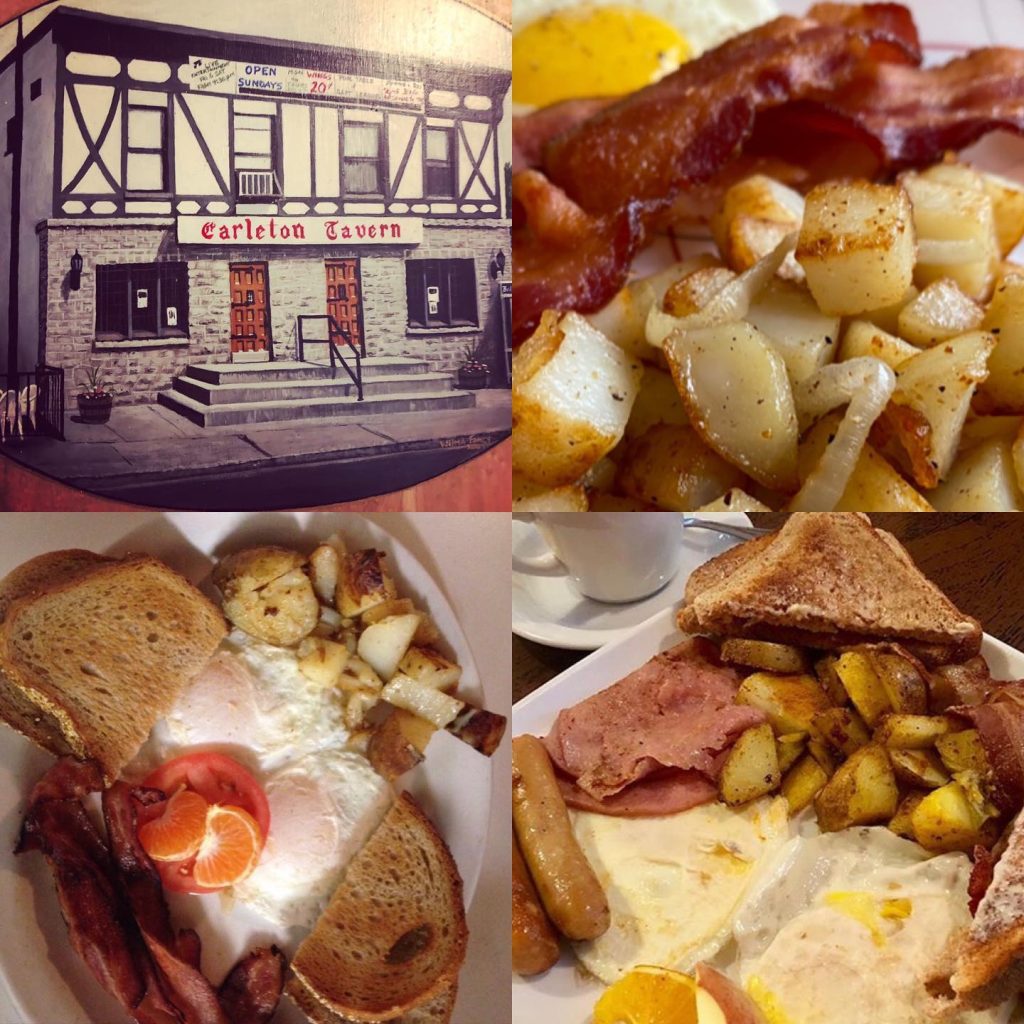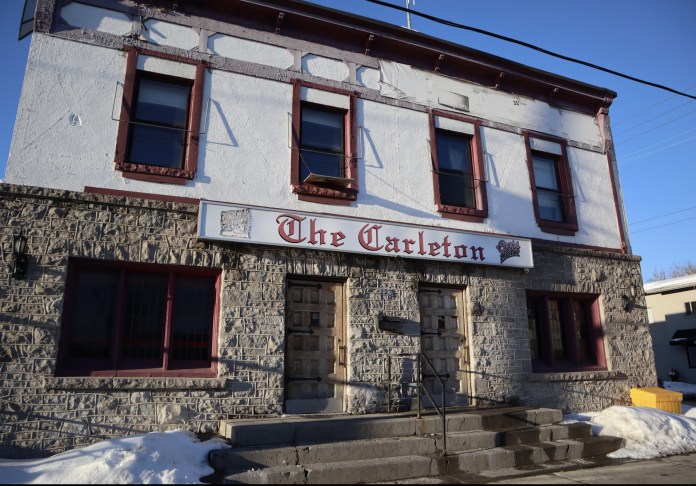By Belle Huston
If you meet a regular patron of the Carleton Tavern, there’s a fun fact they’ll share with you.
Cheryl Parrott of the Hintonburg Community Association, recalls, “In the old days, the Tavern was for men but, eventually, there was the side that was labeled ‘Ladies and Escorts.’ So women could go in with a male escort.” That side of the business was smaller than where the men were drinking.
“So, you still have those two sides at the tavern, and for years it’s just been called the ‘small side’ and the ‘big side’ to identify them,” she said.
The two doors on the front of the building, one for men and one for women and their escorts, are still there today, a puzzle for non-locals who come in for a bite to eat.
Carleton Tavern has come a long way since those “old days.” It has been a staple in Kitchissippi for almost a century, beginning as the Carleton Hotel in 1935. It changed hands often over the years, but had been owned and operated by the Saikaley family since 1964. They owned the Carleton Steak House, next door, and merged the businesses in 2003.
That all changed in February when the family announced they were selling it to Steve Monuk and Phil Coates.
Their reasons were rooted in the pandemic. Simon Saikaley said COVID-19 lockdowns were really draining for their staff, making a hard job much harder.
“For those two years during the pandemic, it was really minimal sales, just takeout and Uber. And well, we were working ourselves. We got by. Thank God it’s starting to get back to normal.”
Other than the pandemic, he and his siblings who also worked at the Tavern are “getting up there in age.” Some wanted to retire or spend more time with their families.

Professor François Brouard from the Sprott School of Business at Carleton University said arts and culture was the “sector most affected by COVID.” Restaurants, comedy clubs, art galleries, were first to close and last to reopen, as a result of public health guidelines.
Even though Ontario has lifted most COVID-19 regulations, pandemic aftershocks on individual mental health, communities, and the economy have been immense.
Saikaley knows about those aftershocks. “Because of interest rates, inflation, the price of food, the cost of gas, people just aren’t going out like they used to … a lot of the restaurants in the area, they don’t open until four o’clock, simply because they can’t find the staff to be open all day.”
Parrott from the community association recalled the Foolish Chicken that had permanently closed, and the Hintonburg Public House had reduced their hours.
Brouard sees three reasons for closures and reduced hours. “people working at home,” hard to pay off loans taken out during the pandemic, and many Ottawa cultural centres, “like the National Art Gallery, are publicly owned, making it more difficult for private businesses to thrive.
Simon Saikaley said that, if not for rising costs and an inability to find employees, the Saikaleys might have continued at the Tavern. Instead, he has his memories of the Tavern where he worked alongside siblings and friends who pulled pranks on their regulars.
“If the customer fell asleep,” he recalled, “the waiters would put a candle underneath their chair in a beer bottle. So, after about five minutes, that seat started getting really hot, and they’d watch the customer starting to squirm! Another time, this poor guy, he fell asleep. He had to take a bus home, so he’d fall asleep and they’d write on his forehead – he had a bald head – they’d write ‘I love you’ and put hearts on it. He’d get on the bus and get looks, and didn’t know why.”
Parrott’s favorite memories of the Tavern were from events there.
“The Carleton was always extremely generous to the community. Anything people wanted to do, they were always up for it … we’d put up posters in there and they’d say, how can we help? So, whether it was providing coffee or other stuff, ice, supplies for whatever was happening, they were always there and available to help. It became … our clubhouse. All good ideas were born sitting at the Carleton.”
According to Brouard, fundraisers, local events, unique stores and restaurants, “make it interesting to live in a community” and there is something irreplaceable about them: “Weddings will be transferred to other locations,” but artists playing at the Carleton might not find another place if it were to close.
Parrott said she feels reassured the new owners understand the value of the community they are inheriting.
“I’m glad … it’s Phil and Steve, because I know that they understand and will keep as much of it as they can going the way that it was… they have told everyone that they want to continue it the way it was, so they’ll keep those fundraisers and things.”
